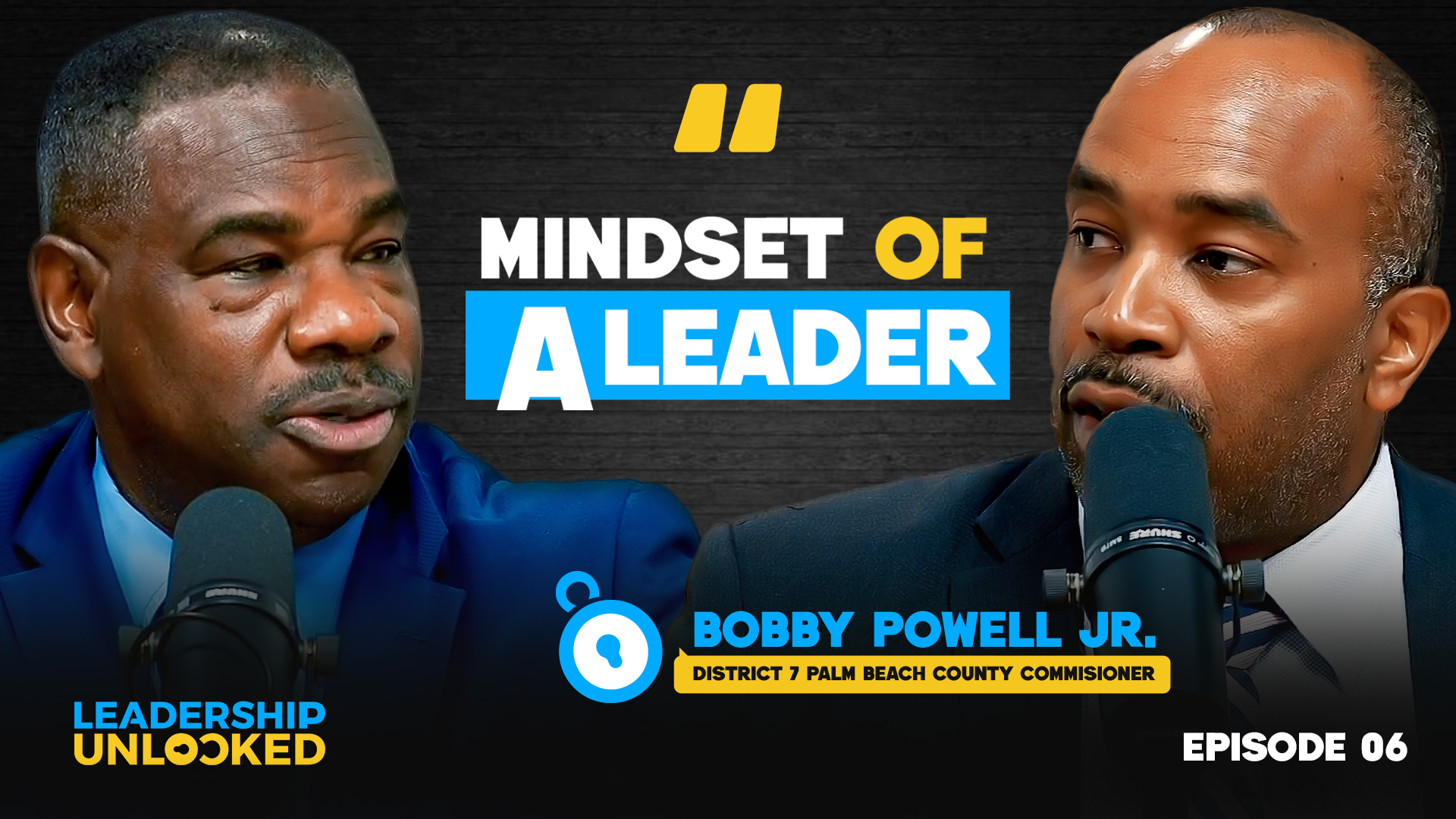Leading with Love: Eric Kelly on Equity, History, and the Future of Philanthropy
In a powerful and deeply personal episode of Leadership Unlocked, host George Lockhart welcomed community titan Eric Kelly, President of Quantum Foundation, to discuss how his life experiences—from growing up in public housing to achieving a doctorate—have shaped his approach to leadership and the future of philanthropy.
A Childhood Question Shapes a Life Mission
Eric Kelly opened the discussion with a foundational memory that set the course for his career: growing up in the Sugar Hill housing projects in Palatka, Florida.
"I realized growing up in the housing projects that something wasn't right... It seemed like there were no men."
Kelly explained that his later studies revealed the systemic root of this observation: historical social policy often dictated that Black women had to be single to receive crucial financial support for their children, effectively creating a policy incentive for men to be absent.
This early realization—that the system was fundamentally flawed—launched his lifelong journey to discover "what was wrong and how to make it right."
The Power of Partnership: Lighting Up the Community
Host George Lockhart recalled his pivotal 2009 partnership with Kelly while Lockhart was principal at Roosevelt Middle School. Lockhart approached Kelly for help funding internet access for a handful of disadvantaged students whose families couldn't afford the $20–$25 monthly fee.
Kelly’s response was transformative: instead of lighting up just ten homes, he suggested, "Why don't we light up the whole community?"
This initiative, which provided internet access to an entire underprivileged corridor for just $9 a month, demonstrated the power of strategic philanthropy. Lockhart noted that the student population subsequently increased by 27%, as digital textbooks and online resources solved key attendance and access barriers for non-affluent students.
Kelly attributes this servant leadership to the core mission of the Quantum Foundation: Philanthropia—the love of humankind.
"We know at the core of all health and well-being is the aspect of learning. And today we call that the social determinants of health."
Redefining Leadership and Correcting History
Kelly defined leadership as using one’s God-given gifts and talents to serve and guide people or organizations to a higher quality of being. He views leaders as being both born (with instinct) and made (through development and honing that instinct).
He further explained that his pursuit of a doctorate in Organizational Change and Leadership focused on the need to correct the past of philanthropy.
"The future of philanthropy really is correcting the past of philanthropy."
Kelly argued that philanthropy, though born out of love, quickly took the path of the day's racial segregation. He cited historical examples where charitable funds provided to Black communities were specifically designed to train students for servant-level positions, while simultaneously funding white institutions for liberal education and scientific discovery.
Kelly’s strategy at Quantum Foundation, which holds an endowment of approximately $170 million (and has awarded $172 million in grants since its founding), is to look at the 23 or 24 communities in Palm Beach County experiencing persistent poverty and apply equity.
"Equity, which means you have to concentrate and give at the level of the need."
Kelly urges philanthropic leaders to realize that the starting point—or genesis—of each community is different, requiring investments that correct past harms and restore lost time and economic resources.
Final Words for Emerging Leaders
When addressing emerging leaders like the podcast's own producers, Kelly stated that he actively seeks to invite new leaders and small nonprofits into the Quantum Foundation's funding process.
His advice is simple but crucial:
Develop a Plan: Don't start with the money. Focus on building a sound strategy and business plan to ensure that grant money isn't simply "gone in three months."
Ask for Help: Kelly expects people to approach him with needs. He encourages breaking past the typical "seven touches" and getting straight to the point: "Can we get some money?"
Kelly concluded with a message of simple humanity: we are here to help each other. In the essence of human goodness, if you have more than you need, and someone else needs the rest, "let that be theirs."





